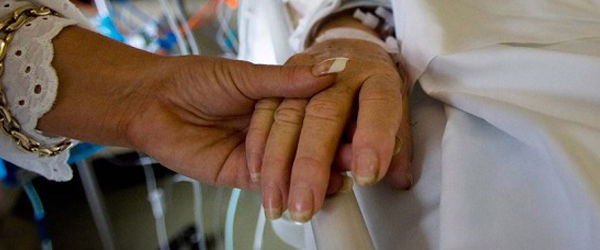Leaving the Feb. 22 Congress workshop “Migration and the Eucharist,” facilitated by Holy Cross Father Daniel Groody in Spanish, Carmen Romero reflected on how emotional the topic can become.Attending Congress from Tijuana for the second time in the last 10 years, the Eucharistic minister has several children who “have made the United States their home.” But as a person who has a degree in theology, she too understands that although migration has a theological explanation, it involves other factors that make it difficult to reconcile with those who oppose it.“We can see God’s justice when our relationships are in order,” Father Groody said during his presentation at the Clarion Hotel. Aided by a power point projection, he started the workshop with a world map showing the migration route throughout human history. Showing a triangle divided in three parts, he explained how migration theology is divided in three levels: pastoral, at the base; spiritual, at the center; and theological, at the top.Migration theology, he said, calls people to check what is lying in their hearts; to review their “internal migration,” because “we are really living as migrants on this Earth. Migration is beyond Mexico and the U.S. No place is my home.” Father Groody listed different types of migrants that stem from specific circumstances surrounding them — “the economic migrant, the refugees, the victims of human trafficking,” he said.A theologian and director of the Center for Latino Spirituality and Culture of the Institute for Latino Studies at the University of Notre Dame, Father Groody said there are a total of 212 million immigrants in the world, or one in 35 people.Using the video sponsored by the University of Notre Dame, “One Border, One Body,” featuring Cardinal Roger Mahony and other religious, Father Groody told the story of the journey of migrants who attempt to cross the border of the U.S., and about the Eucharist celebrated every Sunday at the border between Texas and Mexico.“One of the great gifts of the Eucharist is that it transforms us into Jesus Christ,” said Cardinal Mahony in the video. “And it transforms us into more active and committed disciples. Through the Eucharist we ask forgiveness and especially for any disunity in the body of Christ.”Added Father Groody in the video: “This Eucharist is to say we don’t have to be this way; this is a political construction. This may have a value and its worth, but it’s not an absolute. When you look at this area from above, you see there’s not much of a difference on this side of the fence and the other side of the fence. There’s not a big difference geographically, geologically, culturally and there’s certainly not a big difference in terms of who we are as human beings.”Then he reminded his audience how God called Abraham to leave his own town to migrate to a faraway land, and how when Mary was pregnant she had to leave her town quickly to see her cousin Elizabeth, “not only to visit her, but because according to the laws of those days she would have been stoned for her pregnancy before getting married.“So why do you think God decided to enter her womb before she married Joseph and not after?”He immediately offered two answers: First, to show us “how sometimes we make an idol of the laws; and second, to show his solidarity with the people who were living outside the law.”“God,” he concluded, “was the first undocumented in the world in order to take us to our final land.”Adding that he has visited and held conversations with members of the border patrol, “who are genuinely concerned about the situation at the border,” Father Groody urged participants to “build bridges,” and try to get to know people of other nationalities and cultures in their parishes.“Our spiritual journey starts when we value ourselves and others,” he said, “when I start seeing beyond me.” All Christians, he reiterated, are pilgrims on this Earth. “The way we live reconciliation shows in the way we live our lives together with others,” he said. “God migrated so we can reconcile with him and with others.“My nationality is not my identity, and my work is to build bridges, not walls between people.”{gallery width=100 height=100}gallery/2013/0308/conggroody/{/gallery}

